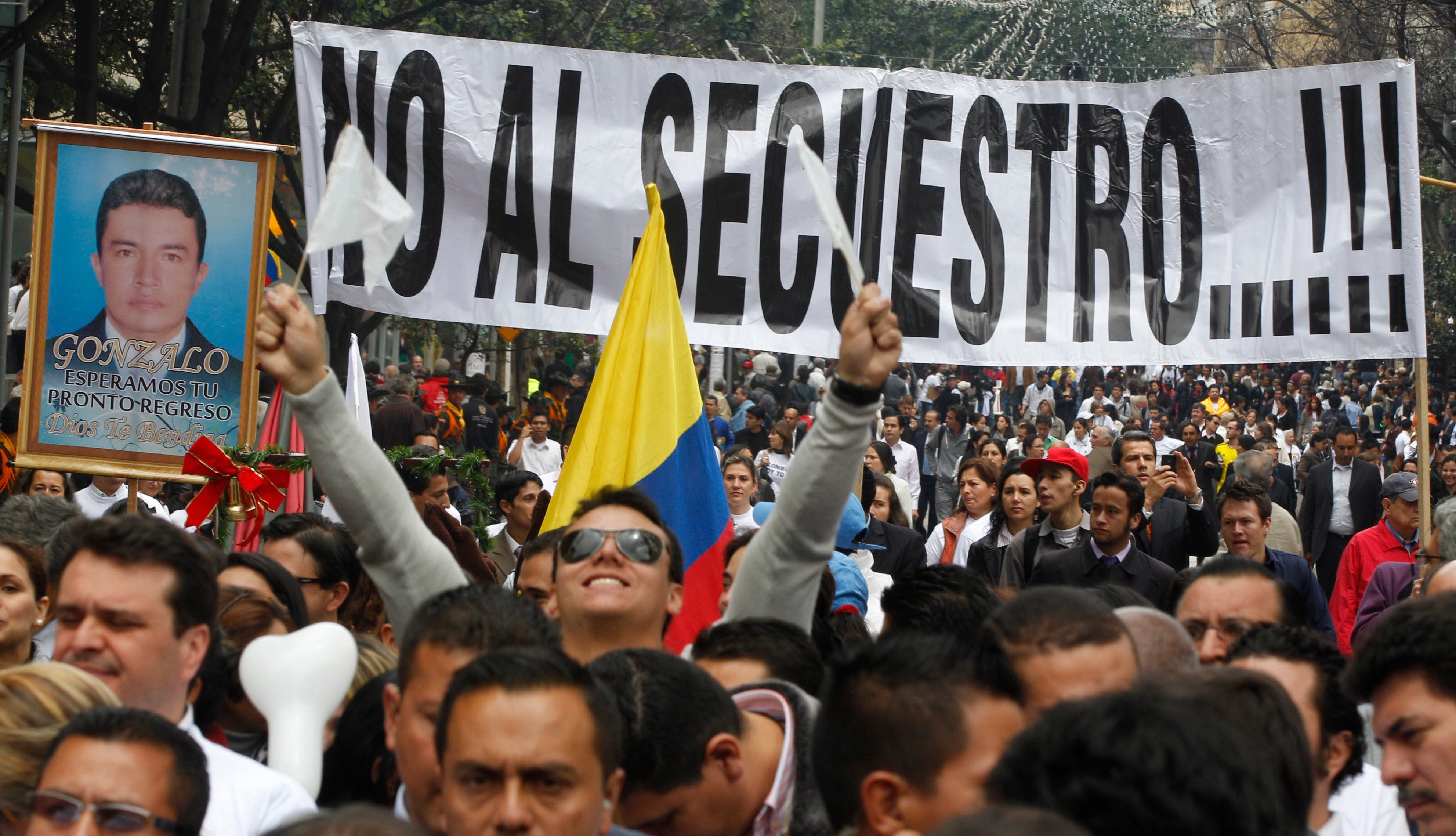Former Colombian rebel leaders recognize role in kidnappings
A group of former leaders of the Revolutionary Armed Forces of Colombia, or FARC, say the guerrilla organization was responsible for war crimes, including the kidnapping of thousands of civilians for ransom and also holding politicians as hostages for several years in the hopes of exchanging them for imprisoned rebels

Your support helps us to tell the story
From reproductive rights to climate change to Big Tech, The Independent is on the ground when the story is developing. Whether it's investigating the financials of Elon Musk's pro-Trump PAC or producing our latest documentary, 'The A Word', which shines a light on the American women fighting for reproductive rights, we know how important it is to parse out the facts from the messaging.
At such a critical moment in US history, we need reporters on the ground. Your donation allows us to keep sending journalists to speak to both sides of the story.
The Independent is trusted by Americans across the entire political spectrum. And unlike many other quality news outlets, we choose not to lock Americans out of our reporting and analysis with paywalls. We believe quality journalism should be available to everyone, paid for by those who can afford it.
Your support makes all the difference.
A group of former leaders of the Revolutionary Armed Forces of Colombia said on Tuesday that the guerrilla organization was responsible for war crimes, including the kidnapping of thousands of civilians for ransom and also holding politicians as hostages for several years in the hopes of exchanging them for imprisoned rebels.
The former FARC leaders recognized their role in these crimes during a hearing held by the Special Jurisdiction for Peace, a tribunal created following a 2016 peace deal between the FARC rebels and the Colombian government.
The peace tribunal is in charge of investigating war crimes committed during the five decade long conflict between the FARC and the Colombian government and finding ways in which victims can be compensated.
Under the terms of the peace deal, former combatants who collaborate with the tribunal can avoid prison sentences but will have to participate in restorative justice schemes that will be determined by the special peace tribunal along with victims.
The peace tribunal says that so far, it has registered more than 3,000 people as victims of kidnappings conducted by the FARC, before the group demobilized in 2016, although the number of total victims could exceed 20,000, according to databases compiled by human rights groups.
In Tuesday’s hearing, Rodrigo Londoño, the FARC’s last commander, said that the kidnappings were sanctioned for years by leaders of the rebel group, who only required that hostages not be killed without their approval. Londoño admitted that some hostages suffered from inhumane treatment that included being tied with chains to trees, or being held within barbed wire fences. He also said that some female hostages suffered from sexual abuse.
“In the name of our revolutionary ideals we committed war crimes and crimes against humanity” the former FARC leader said. “For years we condemned hundreds of human beings to live in inhumane conditions and to suffering that had a lot of impact on their families.”
The hearing was attended by seven former rebel leaders who were part of the FARC’s last secretariat. Sitting across the room were five kidnapping survivors who demanded that the former rebels disclose more details on several high profile cases, including the 2002 kidnapping of 12 members of the Valle del Cauca state assembly, who were held as hostages for five years.
In 2007, eleven of those hostages were executed by their captors in a remote jungle camp in circumstances that are still unclear.
Sigifredo Lopez was the only hostage who was not executed. He addressed the former rebel leaders during the hearing, and said he wanted to know who helped the FARC to kidnap the political leaders.
“The sons and daughters of my colleagues want to know who are the people who shot them,” he added. “There are people who have not been able to grieve over the bodies of their brothers or their parents.”